- Home
- Margaret Atwood
On Writers and Writing Page 2
On Writers and Writing Read online
Page 2
Evidently, any search for a clutch of common motives would prove fruitless: the sine qua non, the essential nugget without which writing would not be itself, was not to be found there. Mavis Gallant begins the Preface to her Selected Stories with a shorter and more sophisticated list of writers’ motives, beginning with Samuel Beckett, who said writing was all he was good for, and ending with the Polish poet Aleksander Wat, who told her that it was like the story of the camel and the Bedouin: in the end, the camel takes over. “So that was the writing life:” she comments, “an insistent camel.”8
Having failed on the subject of motives, I took a different approach: instead of asking other writers why they did it, I asked them what it felt like. Specifically, I asked novelists, and I asked them what it felt like when they went into a novel.
None of them wanted to know what I meant by into. One said it was like walking into a labyrinth, without knowing what monster might be inside; another said it was like groping through a tunnel; another said it was like being in a cave – she could see daylight through the opening, but she herself was in darkness. Another said it was like being under water, in a lake or ocean. Another said it was like being in a completely dark room, feeling her way: she had to rearrange the furniture in the dark, and then when it was all arranged the light would come on. Another said it was like wading through a deep river, at dawn or twilight; another said it was like being in an empty room which was nevertheless filled with unspoken words, with a sort of whispering; another said it was like grappling with an unseen being or entity; another said it was like sitting in an empty theatre before any play or film had started, waiting for the characters to appear.
Dante begins the Divine Comedy – which is both a poem and a record of the composition of that poem – with an account of finding himself in a dark, tangled wood, at night, having lost his way, after which the sun begins to rise. Virginia Woolf said that writing a novel is like walking through a dark room, holding a lantern which lights up what is already in the room anyway. Margaret Laurence and others have said that it is like Jacob wrestling with his angel in the night – an act in which wounding, naming, and blessing all take place at once.
Obstruction, obscurity, emptiness, disorientation, twilight, blackout, often combined with a struggle or path or journey – an inability to see one’s way forward, but a feeling that there was a way forward, and that the act of going forward would eventually bring about the conditions for vision – these were the common elements in many descriptions of the process of writing. I was reminded of something a medical student said to me about the interior of the human body, forty years ago: “It’s dark in there.”
Possibly, then, writing has to do with darkness, and a desire or perhaps a compulsion to enter it, and, with luck, to illuminate it, and to bring something back out to the light. This book is about that kind of darkness, and that kind of desire.
Prologue
This book began life as a series of six lectures, intended for a mixed audience: young and not so young, men and women, specialists in literature and students, general readers, and – especially – writers at an earlier stage or dewier age than my own. In converting these pieces from the spoken to the written word I have attempted to retain the colloquial tone, although I admit to having removed some of the cornier jokes. Those who were present will realize that some material has migrated from here to there, and that several passages have been expanded and – I hope – clarified. The grab-bag nature of the citatations is, however, a feature of the inside of my head, and despite all efforts to make this locale tidier, nothing much could be done about it. The eccentricities of taste and judgment are my own.
The book has inherited its shape from its progenitors; thus the organization of chapters is not tightly sequential. One chapter does not lead by a direct pathway into the next, though all circle around a set of common themes having to do with the writer, her medium, and his art.
The first chapter is the most autobiographical, and also indicates the range of my references: these two things are connected, as writers tend to adopt their terms of discourse early in their reading and writing lives. The second chapter deals with the post-Romantic writer’s double consciousness: I assume that we are still living in the shadow cast by the Romantic movement, or in the fragments of that shadow. The third chapter treats of the conflict between the gods of art and those of commerce that every writer who considers himself an artist still feels; the fourth considers the writer as illusionist, artificer, and participant in social and political power. The fifth chapter probes that eternal triangle: writer, book, and reader. And the sixth and last is about the narrative journey and its dark and winding ways.
In short, this book struggles with a number of the conflicts that have occupied many writers, both those I have known on this plane of earthly being, as they say in California, and those I have known only through their work. Between a rock and a hard place is where much writing is carried on, and these are some of the rocks, and some of the hard places.
I would like to thank my kind and generous hosts at Clare Hall, Dame Gillian Beer and her husband, Dr. John Beer, who made my stay at Cambridge so pleasant; also Claire Daunton, who was in charge of organizing me there. Dr. Sally Bushell took care of my spatial orientation, and Professor Ian Donaldson of the English Department and his wife Grazia Gunn provided a warm and convivial evening. Dr. Germaine Greer must always be thanked on general principles, and for her courage and good humor; as must Xandra Bingley, ever true.
At Cambridge University Press, Sarah Stanton has been the long-suffering editor, with Margaret Berrill acting as copy-editor and Valerie Elliston as indexer. Andrew Brown is the Press Academic Director.
Many thanks as well to Vivienne Schuster, my agent at Curtis Brown in London, and to Euan Thorneycroft, her dauntless backup; and to my other agents, Phoebe Larmore and Diana MacKay, who, though not directly involved in this book, have kept a watchful eye on me lest I run out to play in the traffic. On the Toronto end, thanks to the intrepid Sarah Cooper and to Jennifer Osti, my once and future assistants, and to Sarah Webster, who so assiduously helped with the research and footnotes. Edna Slater called my attention to the 1948 article by Earle Birney cited in chapter 1; and Martha Butterfield must also be thanked, for reasons having to do with the Brown Owl you will encounter in chapter 5.
Finally, thank you to my family – to my sons Matt and Grae, who have dealt with their wicked stepmother over the years with grace and skill; to my daughter Jess Gibson, avid reader, always ready to plunge fearlessly into a new and perilous text; and to Graeme Gibson, whose love, support, and companionship over the years have sustained me in my precarious and somewhat tatty Palace of Art.
And to my teachers, including the inadvertent ones, as always.
1
———
Orientation:
Who do you think you are?
What is “a writer,” and how did I become one?
… a colony lacks the spiritual energy to rise above routine, and … it lacks this energy because it does not adequately believe in itself … It sets the great good place not in its present, nor in its past nor in its future, but somewhere outside its own borders, somewhere beyond its own possibilities … A great art is fostered by artists and audience possessing in common a passionate and peculiar interest in the kind of life that exists in the country where they live.
E. K. Brown, “The Problem of a Canadian Literature” (1943)1
… if you should throw a poetry contest with a prize big enough to attract five hundred poets … you might feel that putting them all together you’d arrive at the typical Canadian maker. When you have finished reading the five hundred poems what you find is that about three people have come close to getting the thing, I mean they know how to write poetry professionally … After these three you get about two hundred metrical smoothies without a metaphor in their bones and then three hundred metrical hobblers … Flying in and out of this mass are three or four poems
brilliant and eerie and spine-chilling because these are the poems of mad people … This analysis of the five hundred Canadian poets fills me with gloom because it represents the grass roots poet, poetry reader, and average sensitive citizen in this country and he is just not very literary at all.
James Reaney, “The Canadian Poets Predicament” (1957)2
The Canadian poet has all the models in the language (not to mention other languages) at his disposal, but lacks the deadening awareness that he is competing with them.
Milton Wilson, “Other Canadians and After” (1958)3
– it seemed that I had to be a writer as well as a reader. I bought a school notebook and tried to write – did write, pages that started off authoritatively and then went dry, so that I had to tear them out and twist them up in hard punishment and put them in the garbage can. I did this over and over again until I had only the notebook cover left. Then I bought another notebook and started the whole process once more. The same cycle – excitement and despair, excitement and despair.
Alice Munro, “Cortes Island” (1999)4
Writing, Writers, The Writing Life – if this last is not an oxymoron. Is this subject like the many-headed Hydra, which grows two other subtexts as soon as you demolish one? Or is it more like Jacob’s nameless angel, with whom you must wrestle until he blesses you? Or is it like Proteus, who must be firmly grasped through all his changes? Hard to get hold of, certainly. Where to start? At the end called Writing, or the end called The Writer? With the gerund or the noun, the activity or the one performing it? And where exactly does one stop and the other begin?
In the novel The Woman in the Dunes,5 by the Japanese writer Kobo Abé, a man called Nikki finds himself trapped against his will at the bottom of a huge sandpit, along with a solitary woman, where he is forced to shovel away the sand that keeps sifting down on them. To comfort himself in his hopeless predicament, he considers writing about his ordeal. “Why couldn’t he observe things in a more self-possessed way? If and when he got back safely it would certainly be well worthwhile setting down this experience.”
Then a second voice enters his head, and he begins a dialogue with it.
“ ‘– Well, Nikki …’ ” it says. “ ‘At last you have decided to write something. It really was the experience that made you …’ ”
“ ‘– Thanks. Actually I’ve got to think up some kind of title.’ ”
You see, Nikki has already slipped into the role of writer – he recognizes the importance of the title. A few steps more and he’d be pondering the cover design. But he soon loses confidence, and declares that no matter how he tries, he’s not fit to be a writer. The second voice then reassures him: “ ‘There’s no need for you to think of writers as something special. If you write, you’re a writer, aren’t you?’ ”
Apparently not, says Nikki. “ ‘Saying you want to become a writer is no more than egotism; you want to distinguish between yourself and the puppets by making yourself a puppeteer.’ ”
The voice says this is too severe … certainly you should be able to distinguish … between being a writer and writing.’ ”
“ ‘– Ah. You see!’ ” says Nikki. “ ‘That’s the very reason I wanted to become a writer. If I couldn’t be a writer there would be no particular need to write!’ ”
Writing – the setting down of words – is an ordinary enough activity, and according to Nikki’s second voice there’s nothing very mysterious about it. Anyone literate can take implement in hand and make marks on a flat surface. Being a writer, however, seems to be a socially acknowledged role, and one that carries some sort of weight or impressive significance – we hear a capital W on Writer. Nikki’s reason for wanting to write is that he wants the status – he wants to cut a figure in society. But happy the writer who begins simply with the activity itself – the defacement of blank pieces of paper – without having first encountered the socially acknowledged role. It is not always a particularly blissful or fortunate role to find yourself saddled with, and it comes with a price; though, like many roles, it can lend a certain kind of power to those who assume the costume.
But the costume varies. Every child is born, not only to specific parents, within a specific language and climate and political situation, but also into a preexisting matrix of opinions about children – whether they should be seen and not heard, whether sparing the rod spoils them, whether they should be praised every day so they won’t develop negative self-esteem, and so forth. So also it is with writers. No writer emerges from childhood into a pristine environment, free from other people’s biases about writers. All of us bump up against a number of preconceptions about what we are or ought to be like, what constitutes good writing, and what social functions writing fulfills, or ought to fulfill. All of us develop our own ideas about what we are writing in relation to these preconceptions. Whether we attempt to live up to them, rebel against them, or find others using them to judge us, they affect our lives as writers.
I myself grew up in a society that, at first glance, might have seemed to lack any such preconceptions. Certainly writing and art were not the foremost topics of daily conversation in Canada when I was born – in 1939, two and a half months after the outbreak of World War II. People had other things on their minds, and even if they hadn’t, they wouldn’t have been thinking about writers. In a magazine article published nine years later entitled “Canadians Can Read, But Do They?” the poet Earle Birney claimed that most Canadians had only three hardcover books in the house: the Bible, the works of Shakespeare, and Fitzgerald’s The Rubáiyát of Omar Khayyám.
My parents were both from Nova Scotia, a province from which they felt themselves in exile all their lives. My father was born in 1906, and was the son of a backwoods farmer. His mother had been a schoolteacher, and it was she who encouraged my father to educate himself – through correspondence courses, there being no high school within reach. He then went to Normal School, taught primary school, saved the money from that, got a scholarship, worked in lumber camps, lived in tents during the summers, cooked his own food, cleaned out rabbit hutches at a low wage, managed at the same time to send enough money “home” to put his three sisters through high school, and ended up with a doctorate in Forest Entomology. As you might deduce, he believed in self-sufficiency, and Henry David Thoreau was one of the writers he admired.
My mother’s father was a country doctor of the kind that drove a sleigh and team through blizzards to deliver babies on kitchen tables. She herself was a tomboy who loved riding horses and ice-skating, had scant use for housework, walked barn ridgepoles, and practiced her piano pieces – since various efforts were made to turn her into a lady – with a novel open on her knees. My father saw her sliding down a banister at Normal School and decided then and there that she was the girl he would marry.
By the time I was born, my father was running a tiny forest-insect research station in northern Québec. Every spring my parents would take off for the North; every autumn, when the snow set in, they would return to a city – usually to a different apartment each time. At the age of six months, I was carried into the woods in a packsack, and this landscape became my hometown.

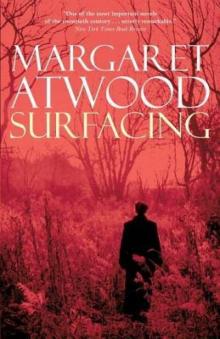 Surfacing
Surfacing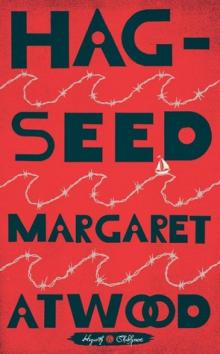 Hag-Seed
Hag-Seed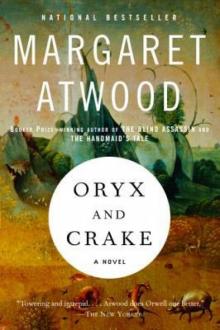 Oryx and Crake
Oryx and Crake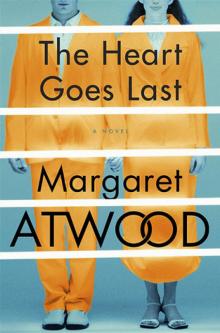 The Heart Goes Last
The Heart Goes Last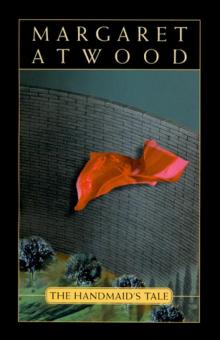 The Handmaid's Tale
The Handmaid's Tale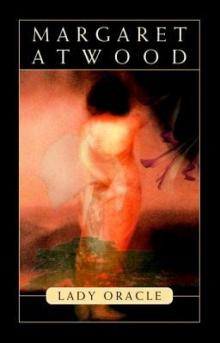 Lady Oracle
Lady Oracle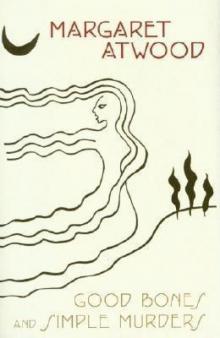 Good Bones and Simple Murders
Good Bones and Simple Murders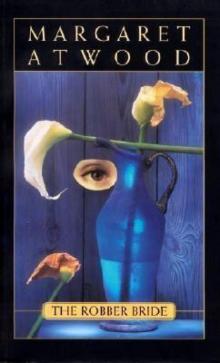 The Robber Bride
The Robber Bride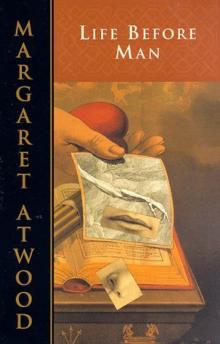 Life Before Man
Life Before Man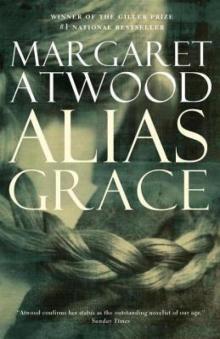 Alias Grace
Alias Grace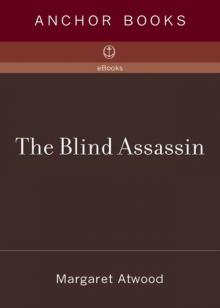 The Blind Assassin
The Blind Assassin Cat's Eye
Cat's Eye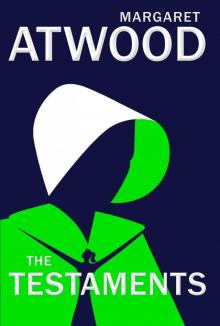 The Testaments
The Testaments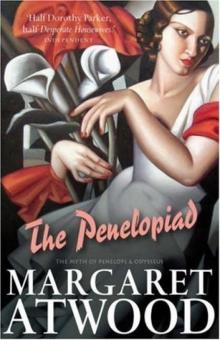 The Penelopiad
The Penelopiad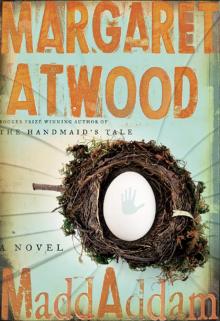 MaddAddam
MaddAddam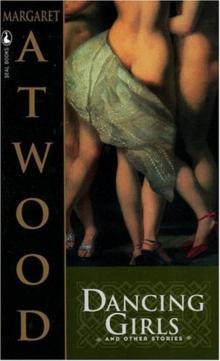 Dancing Girls & Other Stories
Dancing Girls & Other Stories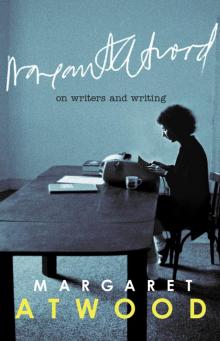 On Writers and Writing
On Writers and Writing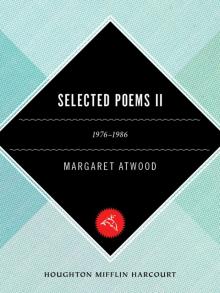 Selected Poems II (1976-1986)
Selected Poems II (1976-1986)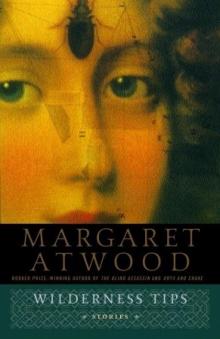 Wilderness Tips
Wilderness Tips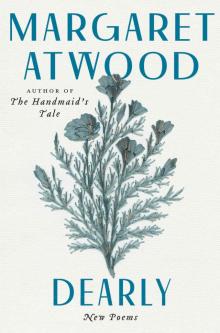 Dearly
Dearly The Tent
The Tent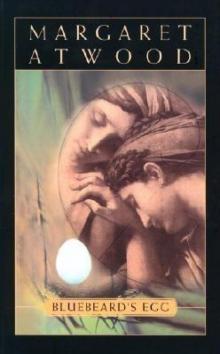 Bluebeard's Egg
Bluebeard's Egg The Edible Woman
The Edible Woman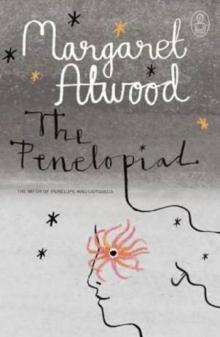 The Penelopiad: The Myth of Penelope and Odysseus
The Penelopiad: The Myth of Penelope and Odysseus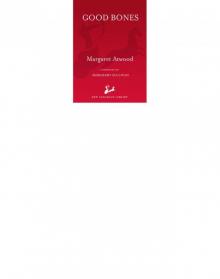 Good Bones
Good Bones I Dream of Zenia with the Bright Red Teeth
I Dream of Zenia with the Bright Red Teeth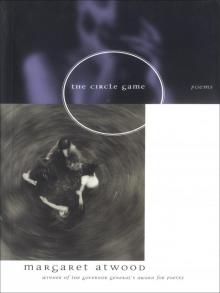 Circle Game
Circle Game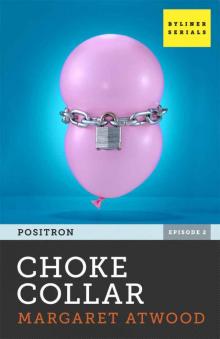 Choke Collar: Positron, Episode Two
Choke Collar: Positron, Episode Two Stone Mattress: Nine Tales
Stone Mattress: Nine Tales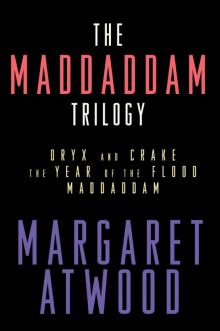 The MaddAddam Trilogy
The MaddAddam Trilogy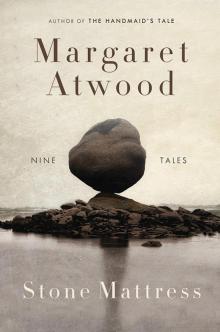 Stone Mattress
Stone Mattress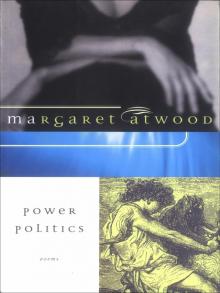 Power Politics
Power Politics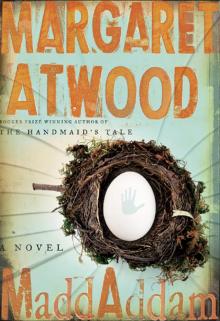 MaddAddam 03 - MaddAddam
MaddAddam 03 - MaddAddam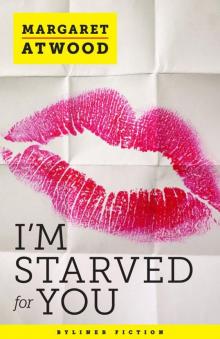 I’m Starved for You (Kindle Single)
I’m Starved for You (Kindle Single)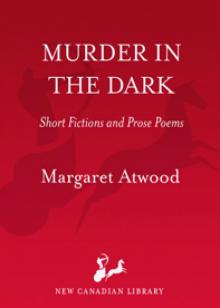 Murder in the Dark
Murder in the Dark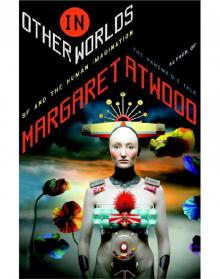 In Other Worlds
In Other Worlds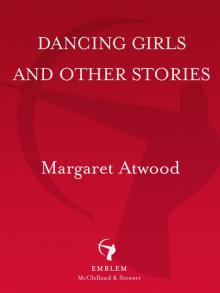 Dancing Girls
Dancing Girls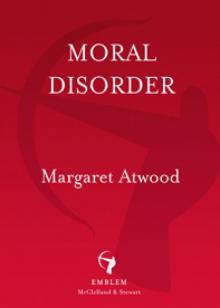 Moral Disorder
Moral Disorder